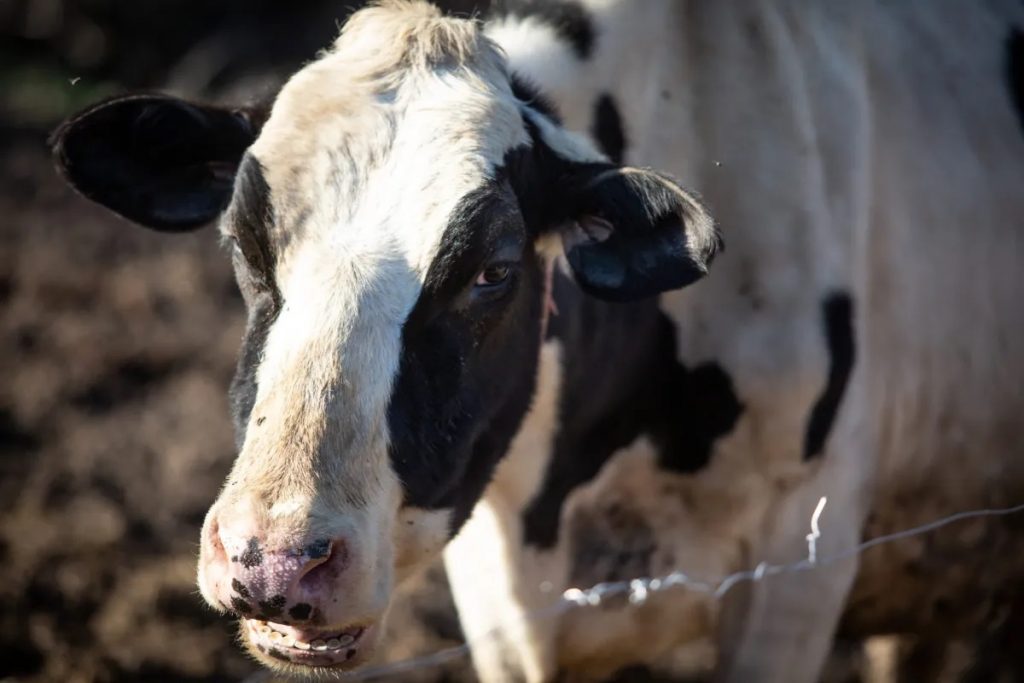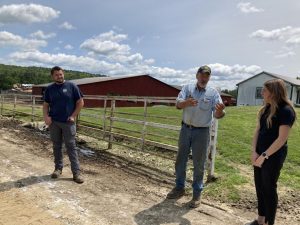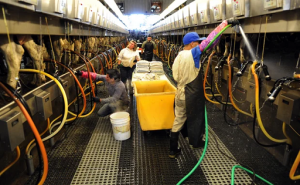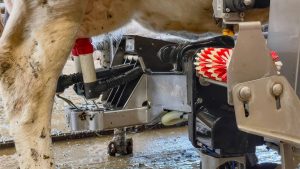
Maine’s struggling dairy farmers were disappointed last week after Democrats on the Legislature’s budget panel turned against an initial plan backed by Gov. Janet Mills’ administration to increase milk prices set under a state relief program.
The disagreements over a proposed boost to minimum milk production prices under the Dairy Stabilization Program — known as the tier system — are an example of tension in budget negotiations in the last weeks of the 2024 session. The Legislature and Mills are weighing an addition to the state budget amid solid revenue projections and a full rainy day fund.
Maine’s tier program, established in 2004 under then-Gov. John Baldacci as a first-in-the-nation effort to help ease price fluctuations, provides funding to farmers when the rates they receive from the market fall below the cost of milk production. The current prices range from just over $20 per 100 pounds of milk for large Tier 4 farms and $23.05 for the smallest Tier 1 farms.
In March, the Legislature’s agriculture committee supported a rule that would essentially cover 25 percent of the gap at a total cost of roughly $26 million through the middle of next year instead of the $35 million needed to fulfill the study’s recommendations. The Mills administration included that boost in its proposed change to the budget.
On Wednesday, however, the Appropriations and Financial Affairs Committee voted 8-4 along party lines to approve a smaller increase that instead covers about 10 percent of the difference but also boosts a one-time payment to support dairy farmers who meet specific production criteria from $3 million to $7 million.
The hundredweight price is $23.68 for Tier 1 and $20.88 for Tier 4 under that plan. Heath Miller of the Maine Dairy Industry Association, who runs Green Valle Farm in Newburgh, said the boost equates to an increase of only about 5 cents per gallon of milk, while the committee agreed on 14 cents and the study called for 56 cents.
Rep. Melanie Sachs, D-Freeport, who co-chairs the budget committee, said the $7 million payment moves it closer to the 25 percent plan and “gets it out the door” quickly, especially to smaller farms. Sachs noted a report due by January will look at additional issues for farmers.
“The focus here is on sustainability,” Sachs said Wednesday.
Republicans on the budget committee bashed the move, including Sen. Rick Bennett of Oxford and Rep. Sawin Millett of Waterford.
“I don’t know how anyone could say we’re sustaining an industry which is already in trouble by starting at a lower level than even the committee asked for,” Millett, a veteran budget negotiator, said.
Miller said the dairy industry association is waiting to see how the $7 million one-time payment would get distributed but added more is needed to assist farmers. The Legislature and budget panel still need to sign off on final budget changes.
“That doesn’t really help us much,” Miller said of the proposed payment.
You can now read the most important #news on #eDairyNews #Whatsapp channels!!!
🇺🇸 eDairy News INGLÊS: https://whatsapp.com/channel/0029VaKsjzGDTkJyIN6hcP1K























